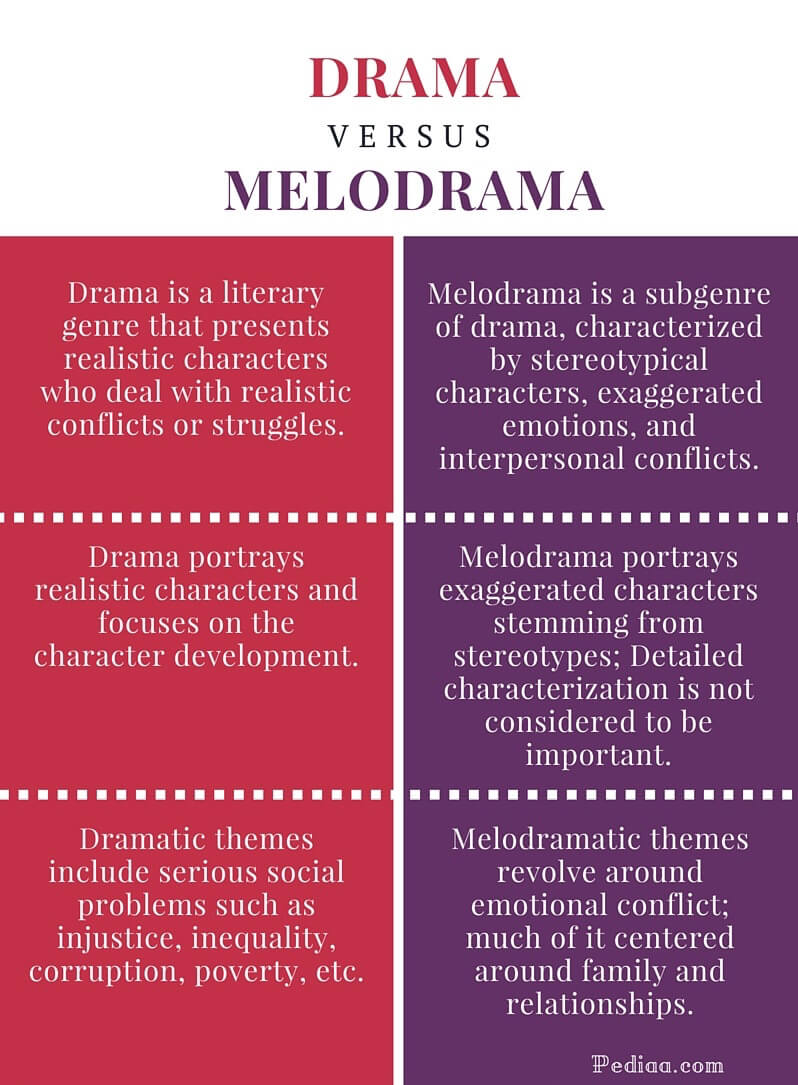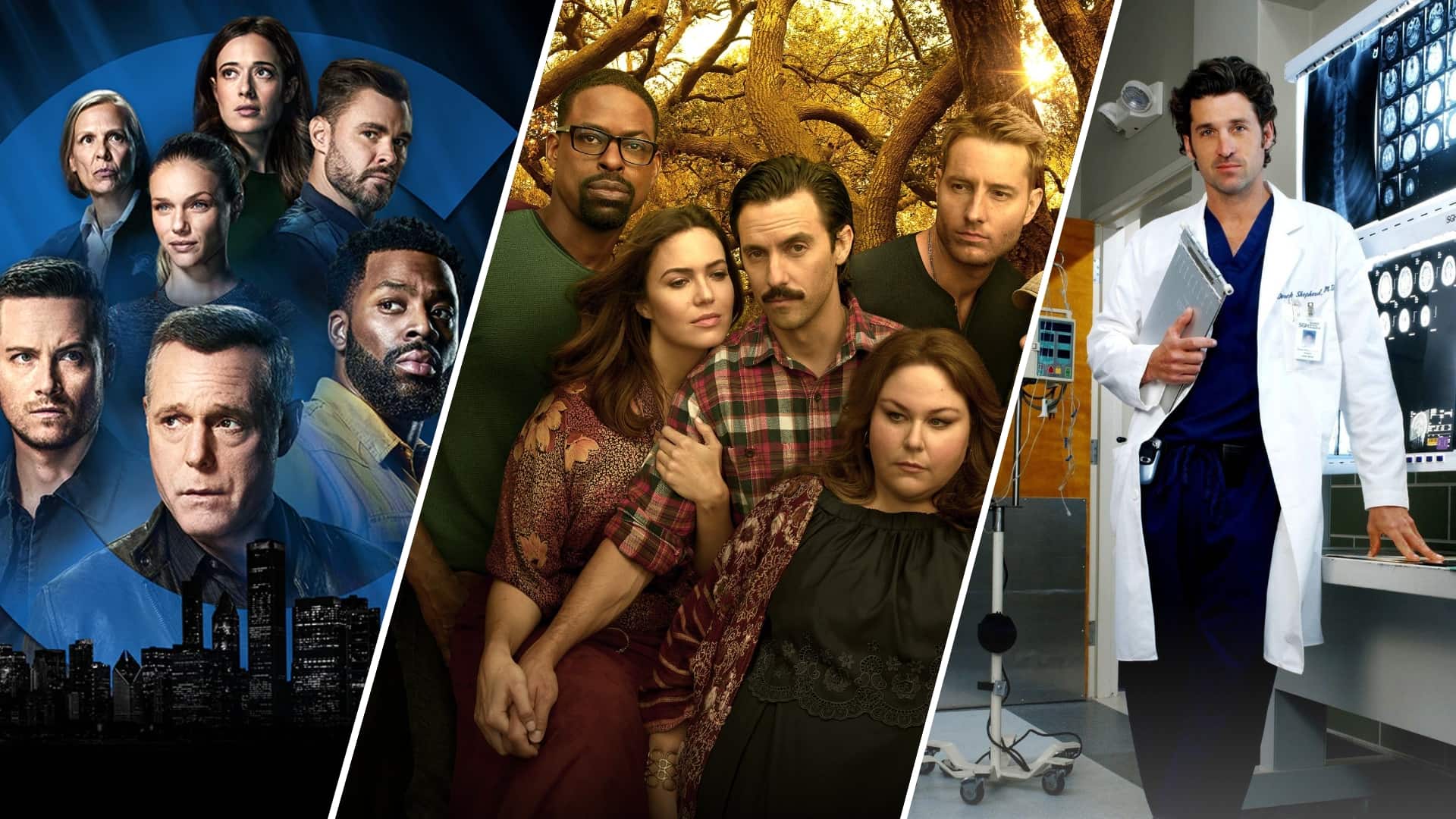Have you ever described someone as melodramatic or been described as melodramatic? The term melodramatic is widely used in common vernacular. However, most people don’t know that it derived from the sub-genre of the Melodrama. In this article, we’ll be taking a look at the Melodrama, its characteristics, and its origin. We’ll also take a look at the differences and similarities between the Drama and Melodrama. Let’s dive in.
melodrama Genre
Melodrama definition and meaning
Many conversations have been had about the differences between Melodrama and other popular genres such as, well, dramas. To really understand how it is distinguished, let’s take a look at the Melodrama definition.
MELODRAMA DEFINITION
What is a melodrama?
Melodrama is a dramatic work in which events, plot, and characters are sensationalized to elicit strong emotional reactions from the audience. In literature, theatre, and cinema, Melodramas are focused on exaggerated plots rather than characterization. Melodrama characters are often given stereotypical roles. Conflicts are often sensationalized for exaggerated character emotions and performances.
The term “melodrama” originated from a combination of the Greek melos meaning “melody” or “song” and the French word drame meaning “drama.” Melodramas were originally theatrical stage plays combining music and dialogue.
They were especially popular during the Victorian Era. Since then, Melodramas in television, film, and theatre have steered away from music and focused on sensationalized, highly emotional stories.
Characteristics of a Melodrama:
- Stereotypical characters
- Exaggerated conflicts
- Sensationalized plots
- Highly emotional
melodrama vs drama
What are the conventions of Melodrama
Fundamental genres all have subgenres that create their own niche. Within the genre of comedy there are romantic comedies, parodies, dark comedies, and more. In the same way, Melodrama is a sub-genre of drama.
Melodramas utilize similar story mechanisms as dramas such as conflict in a story, characters, themes and a logical plot. Where they differ is in the details of these mechanisms.

Drama vs Melodrama
1. Conflict
In a drama, the conflict a character faces is realistic. The conflict arises through a logical and reasonable series of events. In a Melodrama, conflicts are exaggerated and intensified to elicit stronger emotional responses from the audience. The conflict in these stories are often focused on character relationships rather than a larger force.
Related Posts
2. Characters
Many dramas are character-driven pieces. Characters are given realistic personalities and traits that reflect the diversity of the human population. Characters in dramas are often intricate and unique.
In Melodramas, characters are usually given stereotypical roles. These stereotypical roles have derived from the six stock characters. These six characters are referred to as the mean villain, the sensitive hero, the persecuted heroine, the clown, the faithful friend, and the villain’s accomplice.
To learn more about the history of Melodrama in theatre and its evolution into the examples we see today, check out this video breakdown by Crash Course.
What is Melodrama
3. Themes
The differences in conflict and characters together also result in a difference in themes. Dramas explore larger concepts and themes that tend to focus on injustice, inequality, corruption, and societal norms.
While Melodrama used to explore these themes in its original plays, the stories we see in cinema and television today tend to have restrained themes. Themes in these stories are typically interpersonal and highly emotional such as love and family.
Related Posts
Modern Versions
Melodrama examples
Melodrama’s theatrical origin inevitably bled into all forms of storytelling. Melodramatic work can be found in literature, film, and television. The latter debatably has been influenced the most by this style of storytelling.
Television has taken a unique liking to the sensationalized plot lines and emotional twist and turns. Television shows like This is Us, Grey’s Anatomy, and Chicago PD all fall under this category.
What makes these shows so popular are the uncommon, emotionally provocative moments. Just take a look at this compilation of fan voted best moments from Chicago PD. The scenes are ultimately engaging, but uncommon nonetheless.
Melodrama examples • Chicago PD
A common mistake people make when categorizing these stories is mistaking emotional stories for Melodrama. Melodramas are emotional, but not all emotional movies are Melodramas.
For example, The Pursuit of Happyness is often described as a Melodrama. The film is undoubtedly emotional but it doesn't qualify because the story of the film is based on a true story and unfolds with a realistic plot with realistic characters. This is the true story of the protagonist of The Pursuit of Happyness Chris Gardner.
From Homelessness to Happiness
Melodrama has evolved since its origin into something new while retaining its core characteristics. It was wildly popular during the Victorian Era for the same reason it is wildly popular on television today. These exaggerated stories appeal to the emotions audiences turn to the story to feel. And it does it in the most direct way possible.
Related Posts
UP NEXT
Ultimate Guide to Movie Genres
Melodrama is only a drop in a bucket of subgenres that exist in theatre and cinema. To learn more about the various genres and subgenres that exist, check out our next article. We take a look at general genres and the more niche subgenres that fall under them. Learn more next.

Good!.
No word to express how I loved it!